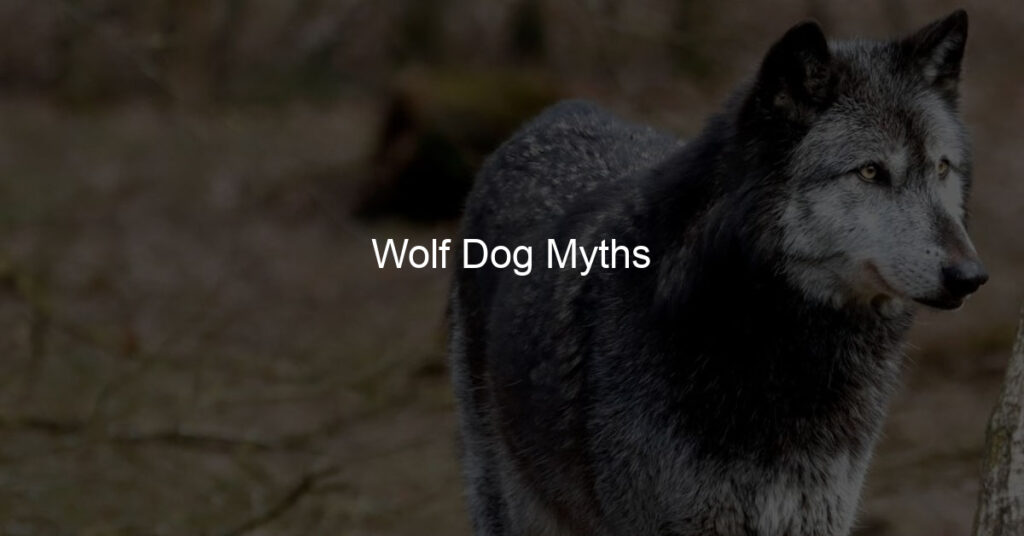Lately, there’s been a lot of talk about wolf dogs – what they are, whether or not they make good pets, and all sorts of myths and misconceptions about them. If you’re thinking about getting a wolf-dog, or if you’re just curious about them, read on to learn the truth about these fascinating creatures.
What does a wolfdog symbolize?
The wolfdog is a unique and powerful creature that captures the imagination of many. Often representing strength, loyalty, and creativity, this canine hybrid is often used as a symbol for things like protection, freedom, and courage.
Nicknamed the “thinking man’s dog,” these animals bring to mind an air of mystery and strength that captivates us with their attention to detail and ability to bond deeply with humans.
Among its admirers are Native Americans who view this remarkable animal as a spiritual form of guidance, serving as both protector and provider. As we come to understand more about them, the wolfdog will likely continue to remain an enduring icon for generations to come.
What happens if a dog meets a wolf?
When a dog and a wolf meet, there are many possible outcomes. While some of these fateful encounters may result in the pair walking away unscathed, it is often much more complicated.
Despite their shared ancestry and similarities that have been nurtured over time, dogs and wolves have very different personalities. Dogs, who have been domesticated for centuries to be friendly with humans, may treat a wild wolf cautiously but can also become overly protective of their human owners if the wild animal behaves aggressively.
Meanwhile, a wolf in its natural habitat almost always views an approaching dog as either food or competition. If the two animals do come face-to-face, responsible pet owners should keep their protectiveness in check and take necessary precautions to safeguard both canine species from an inevitable conflict.
What is a wolf-dog personality?
Wolf dogs are a unique mix of wild and domesticated that exist as amazing companions. While they may look very much like wolves, wolfdogs tend to have more stable personalities than their wild ancestor, often exhibiting less fear and aggression.
Generally speaking, these animals tend to be quite loyal, alert, docile, and friendly – being quite intelligent creatures, they require attention and socialization to maximize their benefit as pets.
Additionally, the various strengths of varying traits can make each individual surprisingly versatile. Despite this variance from dog to dog, wolfdogs are strikingly confident creatures well renowned for their love of adventure.
What God is symbolized by a wolf?
Wolves are often associated with strength and loyalty, traits that also characterize the god Oðinn in Norse mythology.
Referred to as both the All-father and the wolf god, Oðinn was often depicted riding a chariot pulled by noble wolves in Viking artwork and literature. His two wolves Geri and Freki were known to accompany him wherever he went – even into battle.
In some versions of the myths, Oðinn was known to change shape into one of his wolves when it suited his needs. This powerful deity was heavily associated with the concept of wolf, making him a pertinent symbol whenever we think about what god is represented by this majestic creature.
What is a wolf in the Bible?
In the Bible, wolves are mainly discussed in a symbolic sense rather than as physical creatures. Wolves have long been associated with divine punishment and destruction, a role seen in stories like that of Lycaon, who was turned into a wolf after angering the gods by serving them human flesh.
This idea is echoed elsewhere in scripture – for instance, when Jeremiah sees a “lion from the forest” attacking God’s people he likens it to “the destroyer,” possibly meaning a wolf or other wild animal.
However, this isn’t always the case; some early Jewish tales describe wolves and other animals teaming up with humans to fight off evil beasts such as dragons or serpents. On whole, however, when looked at through an interpretive lens it appears that within the Bible wolves are more indicative of chaos and threat than companionship or safety.
Concluding Thoughts
As we can see, there are many myths surrounding wolf dogs. However, when it comes down to it, these animals deserve respect and care just like any other animal. Wolf dogs have unique physical and mental needs that must be met for them to thrive; for example, the need for a large enclosure and regular attention from their owners.
Those considering adding a wolf dog to the family must make sure to do the necessary research on the individual breed and its specific requirements before making a decision.
Ultimately, before fully committing to owning a wolf dog, potential owners should speak with experienced breeders who can provide advice and advice about potential behavioral problems of the breed. By understanding all of your responsibilities as an owner and having access to resources such as knowledgeable breeders or trainers, you can ensure that your canine companion is given all the love they need so they can thrive in their new home.








